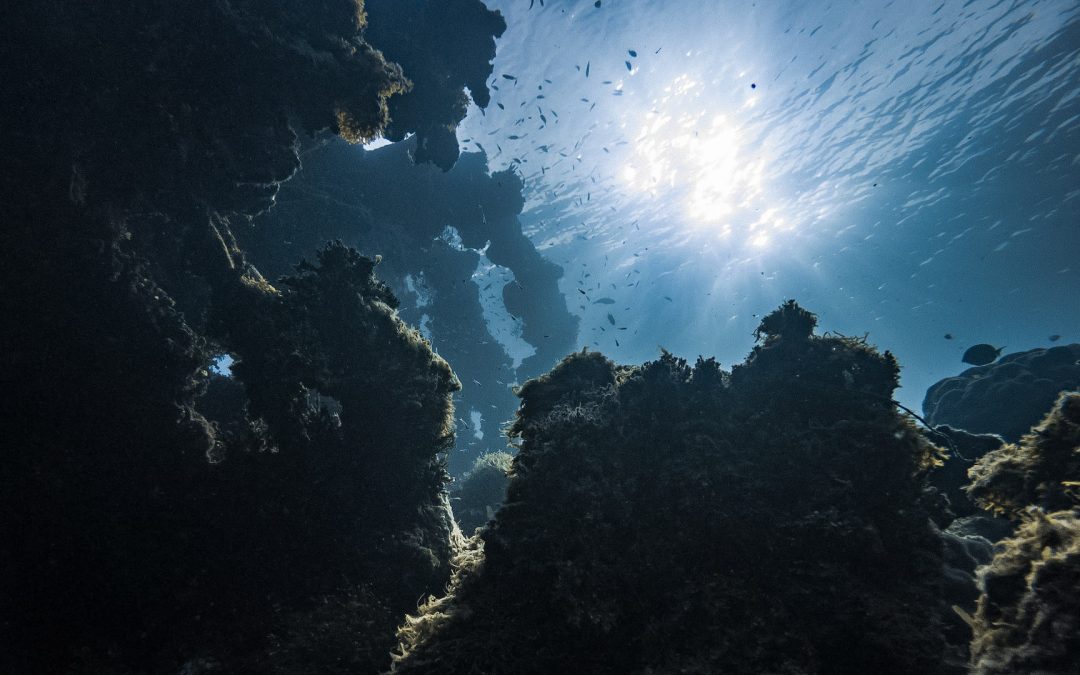By Monash University
Changes in the ocean’s chemistry, as a result of increasing atmospheric carbon dioxide (CO2) levels, threaten marine plankton to a greater extent than previously thought, according to new research.
The research, published in Nature Climate Change, revealed around half the CO2 released through human activity dissolves in the ocean, where it forms carbonic acid leading to a decrease in seawater pH.
Scientists found the changes in the pH levels, along with global warming, could lead to poor growth if not death of marine plankton.
“On examining individual cells, we found many of the species were highly sensitive to increased acidity, reducing their individual silicification rates by 35-80%. These results revealed not only are communities changing, but species that remain in the community are building less-dense cell walls.”
Professor John Beardall from the School of Biological Sciences at Monash University collaborated with international researchers from Swansea University’s Centre for Sustainable Aquatic Research, who led the study, the Marine Biological Association, Plymouth, the University of Dundee and the University of Technology in Sydney.
Professor Beardall said the impact that ocean acidification-induced changes have on plankton was a major concern.
“This research suggests the impact of oceanic acidification upon marine plankton could be more serious than previously thought,” Professor Beardall said.
“Acidity levels will more than double by the end of the century as a result of the increase in CO2 levels in the ocean, but it is unclear how the growth of plankton will respond to this increase.”
Using mathematical modelling and their understanding of cellular physiology, the team has found that many marine plankton will experience a substantially more acidic environment than currently suggested.
Professor Beardall plans to develop the research further to understand the effects of ocean acidification and other aspects of climate change on key Australian phytoplankton species.
From Monash University News: http://www.monash.edu.au/news/show/global-warming-puts-oceans-plankton-under-greater-threat
Photo by Marek Okon on Unsplash


Ocean Acidification is now irreversible… at least on timescales of at least… TENS of THOUSANDS of years…
Even with stabilisation of atmospheric CO2 at 450 ppm, Ocean Acidification will have profound impacts (death and extinction) on many marine systems.
LARGE and rapid reductions of global CO2 emissions are needed globally by at LEAST 50% by 2050.
Analysis of past events in Earth’s geologic history suggests that chemical recovery (normal pH for LIFE in the Ocean) will take TENS of THOUSANDS of years – while the recovery of ecosystem function and biological diversity (LIFE AS WE KNOW IT) can take much longer. (MILLIONS OF YEARS)
http://interacademies.net/10878/13951.aspx
—
..:: “Every day, 70 MILLION TONS of CO2 are released into Earth’s atmosphere. ( remaining in the atmosphere for thousands of years )
..:: “Every day, 20 MILLION TONS of that CO2 are absorbed into the OCEANS, thereby increasing the overall ACIDITY of the OCEANS.
By 2100, Ocean acidity will increase another 150 to 200 hundred percent.
This is a dramatic change in the acidity of the oceans. And it has a serious impact on our ocean ecosystems; in particular, it has an impact on any species of calcifying organism that produces a calcium carbonate SHELL.
–
http://www.ClimateWatch.NOAA.gov/video/2010/origin-impacts-ocean-acidification
—
..:: “These are changes that are occurring far too fast for the oceans to correct naturally, said Dr Richard Feely with the US National Oceanic and Atmospheric Administration (NOAA)
..:: “Fifty-five million years ago when we had an event like this (and that took over 10,000 years to occur), it took the oceans over 125,000 years to recover, just to get the chemistry back to normal,” he told BBC News.
..:: “It took two to 10 million years for the organisms to re-evolve, to get back into a normal situation.
..:: “So what we do over the next 100 years will have implications for ocean ecosystems from tens of thousands to millions of years. That’s the implication of what we’re doing to the oceans right now.”
—
http://www.bbc.co.uk/news/science-environment-17088154
–
http://ecodelmar.org/phytoplankton
–
This is a question more than a comment. What risk does phytoplankton ‘die off’ related to ocean acidification and rising atmospheric CO2, pose to the maintenance of atmospheric oxygen at levels that can sustain human life ?